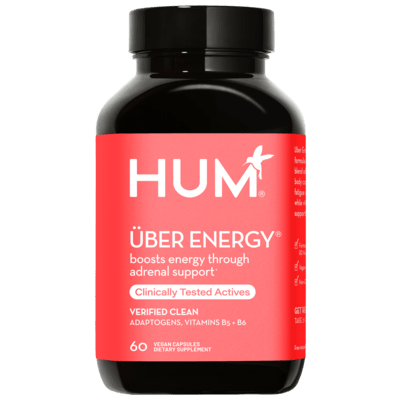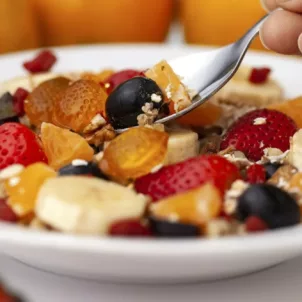It can be tough to set that cup of coffee down. Whether it’s the rich, nutty flavor, the boost of energy, or the ritual of sipping, there are plenty of reasons to love coffee.
But sometimes, it’s healthy to cut ties with the thing you love—and coffee is no exception. Maybe you realized caffeine is keeping you up at night, you feel too jittery afterward, or you have a medical condition that requires you to limit your coffee. If you’ve been rethinking your daily cup (or two), finding an alternative to coffee can help make the transition easier.
Read on to discover several healthy coffee alternatives that will still provide the energy, flavor, or ritual you crave.
The Good and the Bad of Coffee
The benefits of coffee
One of the biggest perks of drinking coffee is the instant zap of energy it provides. This is thanks to a stimulant known as caffeine.
According to a review of studies, caffeine can help you think more clearly and boost mood and alertness at 37.5 to 450 milligrams (mg) per day. One cup of brewed black coffee provides roughly 96 mg of caffeine per estimates from the US Department of Agriculture (USDA).
Coffee also packs antioxidants like melanoidins (brown pigments) and phenylalanines, according to a research review. Antioxidants help protect your body from the damaging effects of free radicals. Experts point to free radicals as a major cause of premature aging and various diseases, including cancer and heart disease. Your body can accumulate free radicals through stress, certain medications, cigarette smoke, and air pollution, per a review.
But for all the good coffee can do, there are downsides to sipping too much.
Side effects of coffee
“Caffeine can worsen anxiety, cause jitteriness, and decrease quality and amount of sleep,” says Stacey Simon, MS, RDN, a registered dietitian in New York City. Many people also find that coffee itself causes digestive issues like GI upset, nausea, and reflux, she says. Coffee may even cause bloating for some.
Benefits of Quitting Coffee

Because caffeine is a stimulant, you can develop a dependence on coffee. If you rely on coffee to boost your energy levels every day, you may experience some unpleasant side effects when you can’t get your fix. Take this as a sign it may be time to cut ties (or at the very least, rethink your reliance.) “The afternoon headache that hits you if you don’t have that second cup may be an incentive to reduce caffeine intake,” Simon says.
Keep an eye out for these other side effects of coffee:
- Disrupted sleep
- Jitters
- Frequent trips to the bathroom
- Fast heartbeat
- Muscle tremors
- GI issues
- Irritability
If you’re bothered by any of these side effects, reconsider your coffee habit.
You also may want to quit coffee or find a coffee alternative if you’re pregnant. The American College of Obstetricians and Gynecologists recommends pregnant women limit their caffeine intake to less than 200 mg a day. Talk to your doctor to determine what is best for you.
How to Quit Caffeine or Ease Yourself Off Coffee
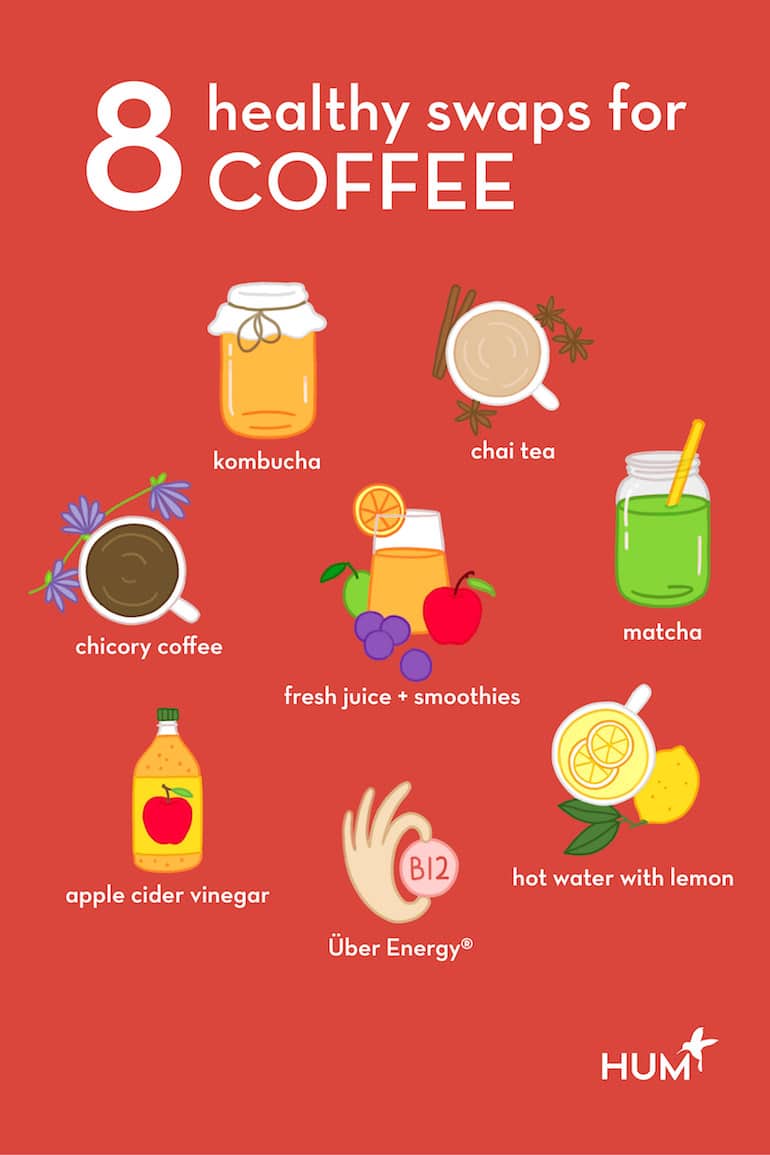
If you’re ready to kick coffee, start by tallying your daily coffee intake. This will give you an idea of where and when to cut back.
For example, if you typically drink an oversized mug of coffee first thing in the morning, try switching to a smaller mug. Or order the next drink size down for your afternoon brew at the coffee shop. If you usually drink cold brew, which tends to have more caffeine than drip coffee, try ordering it with extra ice to start. Cut back gradually so your body can get used to lower levels of caffeine without suffering from too many withdrawal effects, recommends the Mayo Clinic.
Still, side effects like headaches and irritability are possible, so it helps to be prepared. “Counteract [the side effects] by drinking ample water and aiming for natural energy pick-me-ups, such as exercise and time in the sun,” says Sarah Schlichter, MPH, RDN of Bucket List Tummy and owner of Nutrition For Running.
Incorporating coffee alternatives (like the ones below) into your routine is another great way to kick your habit.
7 Healthy Alternatives to Coffee to Try
1. Matcha Tea
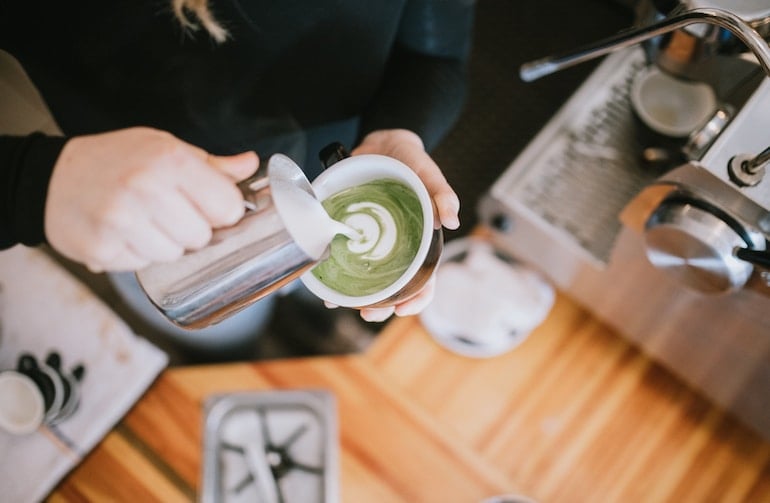
If you crave the ritual of sipping a warm beverage first thing in the morning, give matcha a try. It’s a type of powdered green tea high in antioxidants that may help lower inflammation, Simon says. You can mix the powder into hot water for an earthy-flavored tea, or add in milk or a milk alternative to create a vibrant green latte.
Plus, the buzz you’ll get from matcha will make you feel alert without the jitters you typically encounter from coffee. “Matcha contains an amino acid called L-theanine, which gives you a calmer burst of energy and no crash,” Simon explains. (That’s one reason you’ll find l-theanine in HUM’s Calm Sweet Calm.)
Be aware that matcha does contain caffeine, though the amount is much lower than you’d find in coffee, she adds.
2. Fresh fruit and vegetable juices and smoothies
Blending or extracting fresh fruits and veggies into a juice or smoothie is a great way to get a hearty dose of vitamins and minerals in a single serving. “Fresh fruits, such as berries, bananas and oranges, and leafy greens, like kale and spinach, are packed with vitamins that help your body convert food into fuel, also known as energy,” says registered dietitian Rebecca Valdez, MS, RDN. “Fruits also contain glucose, which is your brain’s preferred fuel source,” she says.
If you have a juicer or blender, play around with different flavor combos until you find something you love. (We love this Vitamin C Smoothie or Skin-Hydrating Coconut Smoothie.)
3. Chicory coffee
If you can’t part with the flavor of coffee, chicory coffee is for you. “Made from the chicory root, this beverage looks, tastes, and smells like coffee, but without the caffeine and acidity that coffee beans bring to the mug,” Simon says.
Chicory root contains inulin, a prebiotic that may help promote gut health and reduce inflammation. It may also improve blood sugar control: A 2017 study found that chicory inulin helped with blood sugar control in rats with type 2 diabetes after eight weeks. However, more research is needed, Simon says.
You’ll find chicory coffee offered at some coffee shops, or you can buy a pack of grounds and brew it at home. Chicory coffee is often mixed with regular coffee 50/50, which makes it a great way to slash your caffeine intake in half. But if you’d rather nix regular coffee altogether, check the label or menu before ordering.
Women who are pregnant or breastfeeding should avoid chicory altogether, Simon says.
4. Apple cider vinegar
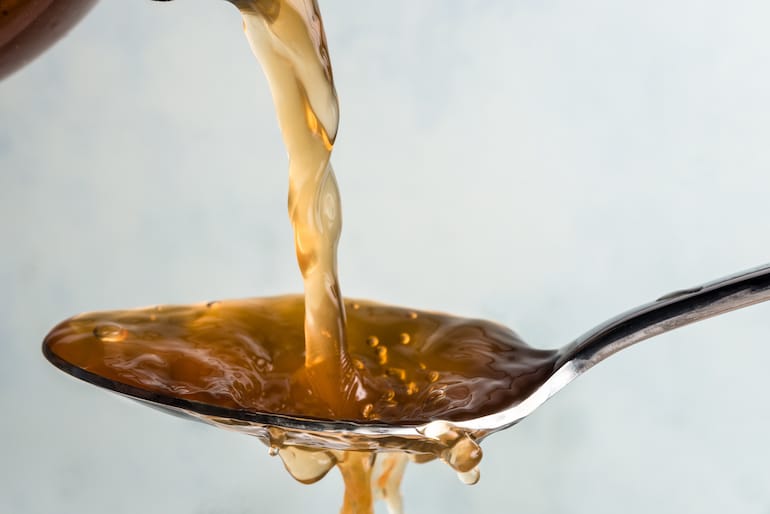
“This one is a little out there, but bear with me,” says Courtney D’Angelo, MS, RDN, a registered dietitian at Fit Healthy Momma. Apple cider vinegar (ACV) is made by fermenting the sugar from apples, which creates a compound known as acetic acid, according to a 2014 review.
Acetic acid has been credited with providing the many benefits associated with ACV. “It works to give you more energy throughout the day by helping to regulate blood sugar levels, keeping your energy up, and preventing fatigue,” D’Angelo says.
ACV can be harsh on your teeth, so don’t drink it straight. Instead, dilute a small amount (no more than 1 to 2 tablespoons) into a warm mug of water, recommends The Cleveland Clinic.
5. Chai tea
Chai is a sweet and spicy drink that originated in India. It’s made by combining black tea with aromatic herbs and spices like cinnamon, cloves, and black pepper.
“While still a caffeinated beverage, many chai tea brands are lower in caffeine than your morning cup of drip coffee,” Simon notes. “Your average cup of chai will contain about 25 mg of caffeine, compared to a cup of coffee, which can be upward of 75 mg.” This makes chai a great option for cutting back your daily caffeine intake, while still reaping some of its energy-boosting benefits.
Prepare it with hot water and a splash of sweetener (optional), or try a frothy chai latte.
6. Hot water with lemon

“While this certainly won’t give you that caffeine jolt you get from your morning joe, hot water with lemon has become a popular beverage to start your day,” Simon says.
Simply squeezing a little citrus gives a mug of plain ol’ hot water a fresh taste, helping you rehydrate after a long night’s sleep. Plus, the lemon is a great source of the antioxidant vitamin C, Simon notes.
You can also certainly drink it cold, though Simon recommends warming the water. “It feels like a nice, soothing alternative to a morning cup of coffee,” she explains.
7. Kombucha
Kombucha is a popular fermented tea drink. “The crispness of the sour and fruity beverage tends to provide me with a mid-afternoon energy boost most days of the week,” says Mary Wirtz, MS, RDN, a nutritional consultant at Mom Loves Best.
Kombucha contains B vitamins, which are vital for helping your body release energy, she says. It’s also a rich source of antioxidants and probiotics (the health-promoting bacteria you need for a balanced gut), says Melissa Mitri, MS, RDN, a registered dietitian for Wellness Verge. These nutrients can aid digestion and provide needed energy without the crash you typically get from caffeine, she says.
When shopping for kombucha, Mitri recommends opting for varieties with less than 5 grams of sugar per serving. Or, try making your own.
8. Supplements
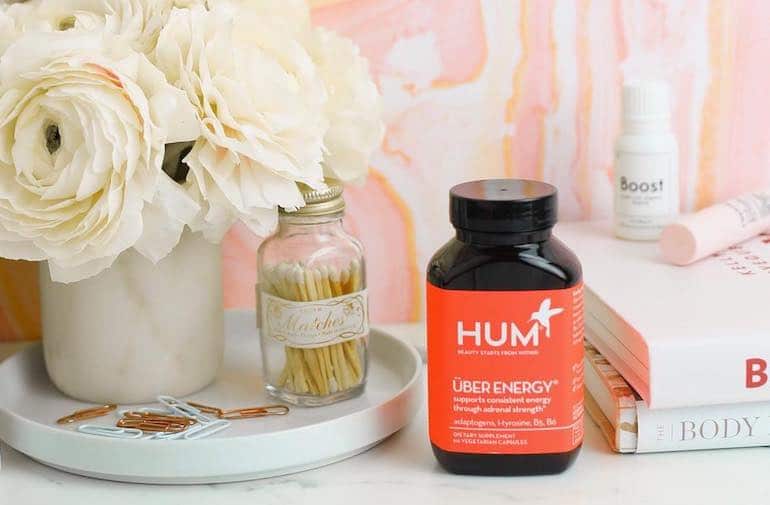
If you’re after the boost of energy that you usually get from the caffeine in coffee, you can also try certain vitamins and supplements for energy. HUM’s Uber Energy was specifically formulated to help with natural energy through adrenal support. It contains a blend of five different adaptogens that help reduce fatigue and B vitamins for energy metabolism. (Seriously, it’s packed with clinically effective doses of powerful plants!) Standout ingredients include eleuthero, which reduces moderate physical and mental fatigue, and L-tyrosine, an amino acid that might help reduce acute effects of stress and fatigue by helping to support the levels of neurotransmitters depleted by stress.


